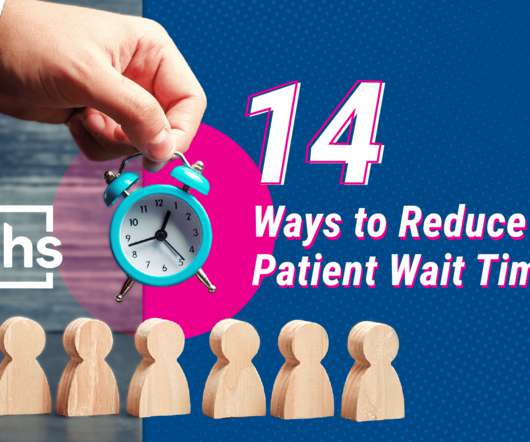14 Ways to Reduce Long Patient Wait Times
Healthcare Success
MAY 31, 2022
To further complicate matters, as healthcare consumers continue to prioritize patient experience, physicians are leaving private practices for hospitals and larger medical groups at an alarming rate. According to Avalere Health , nearly three in four doctors work for a hospital, health system, or corporate entity today.













Let's personalize your content